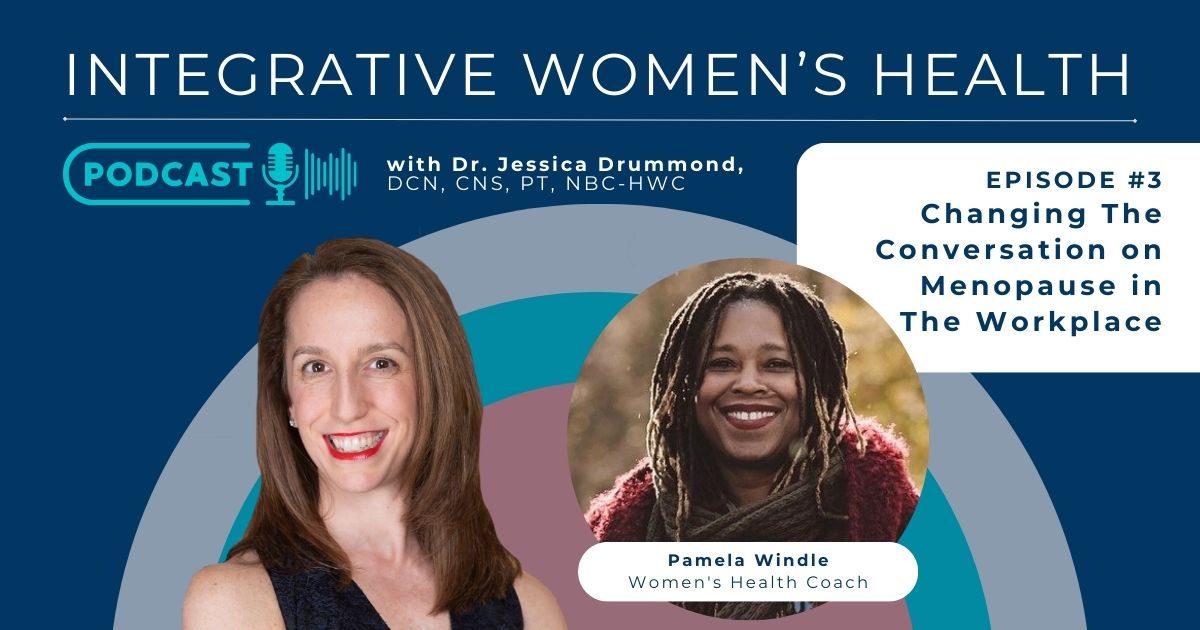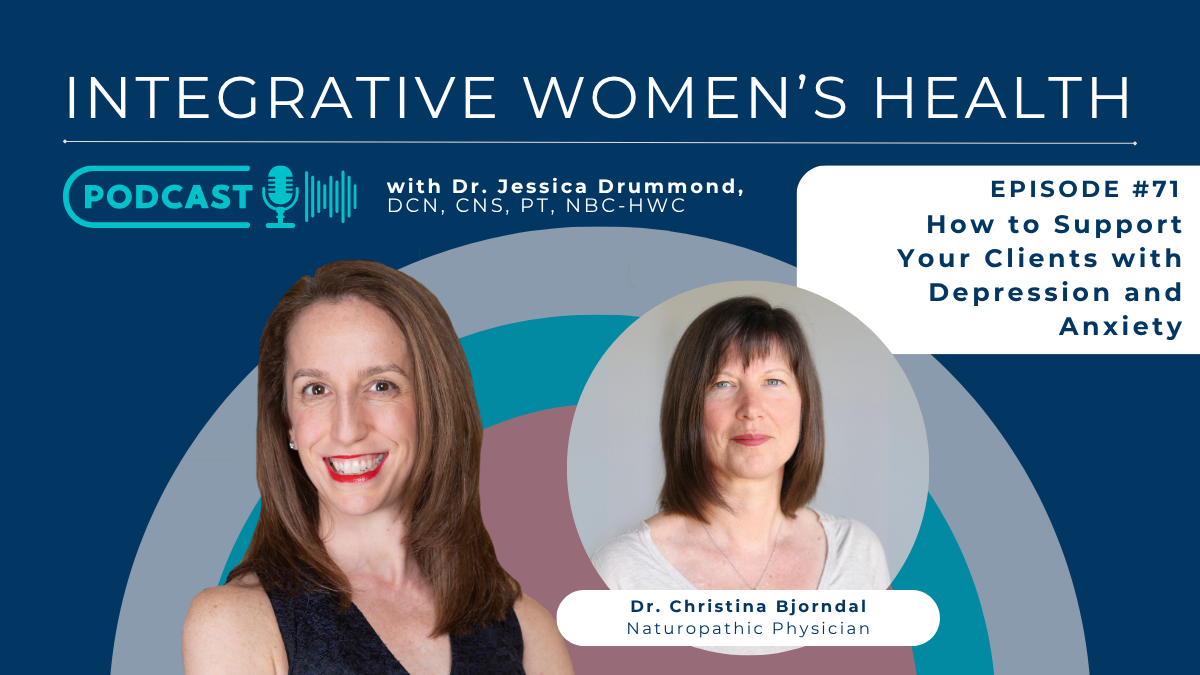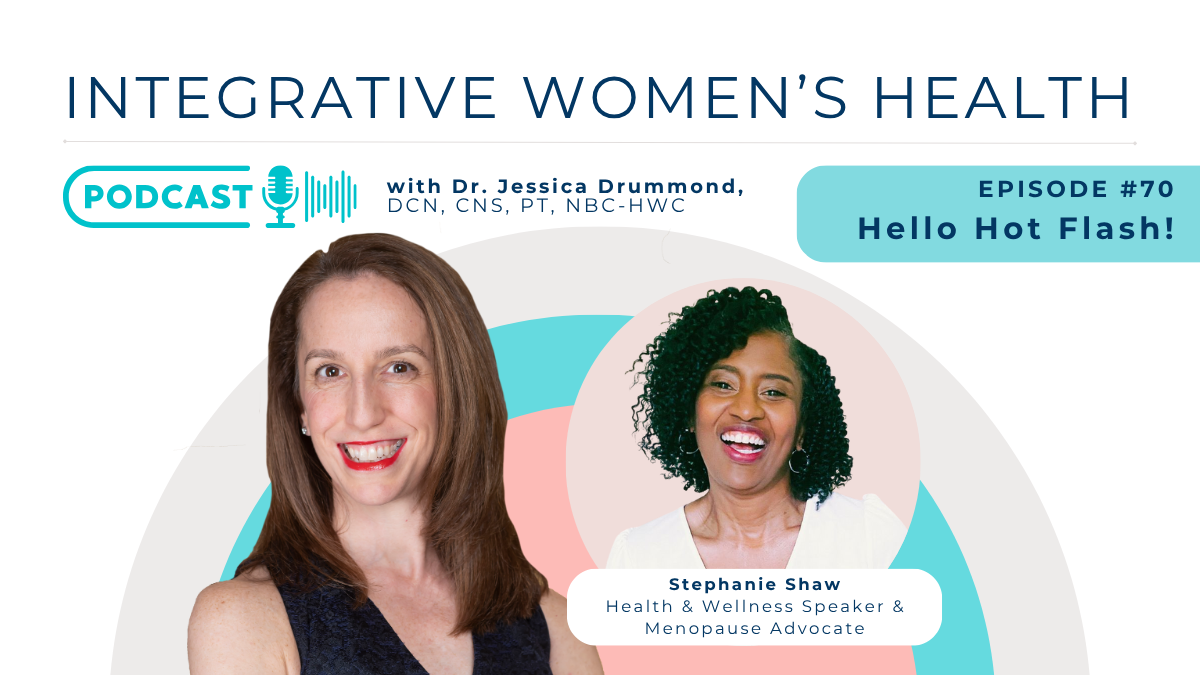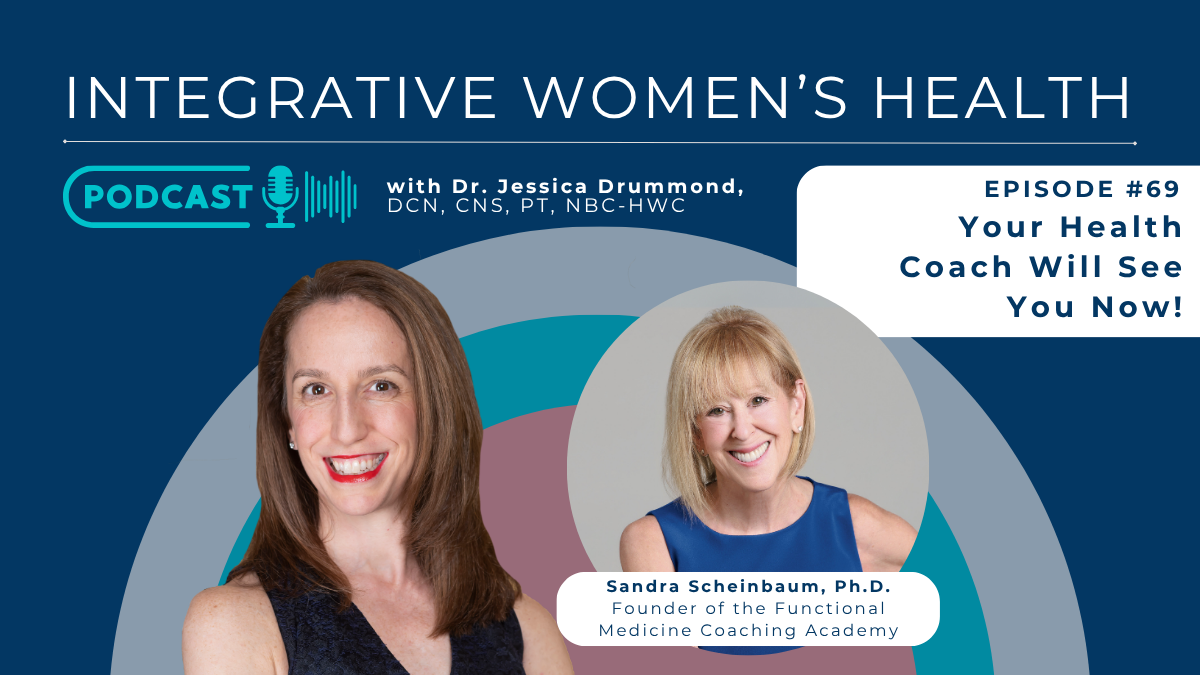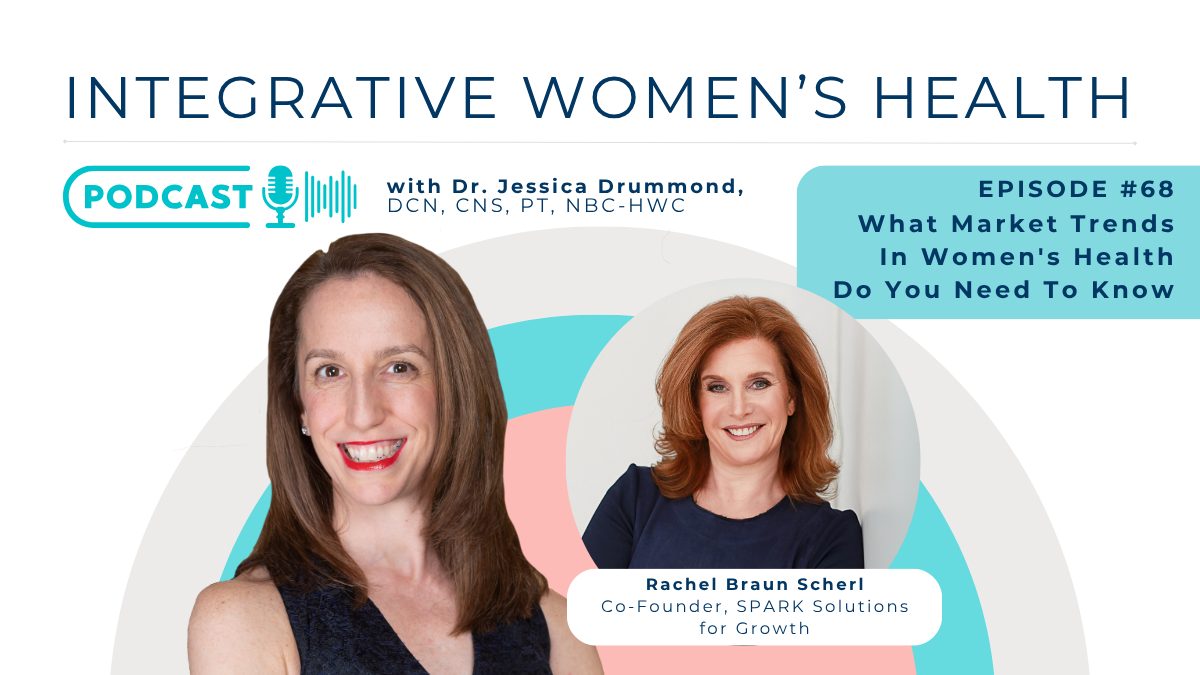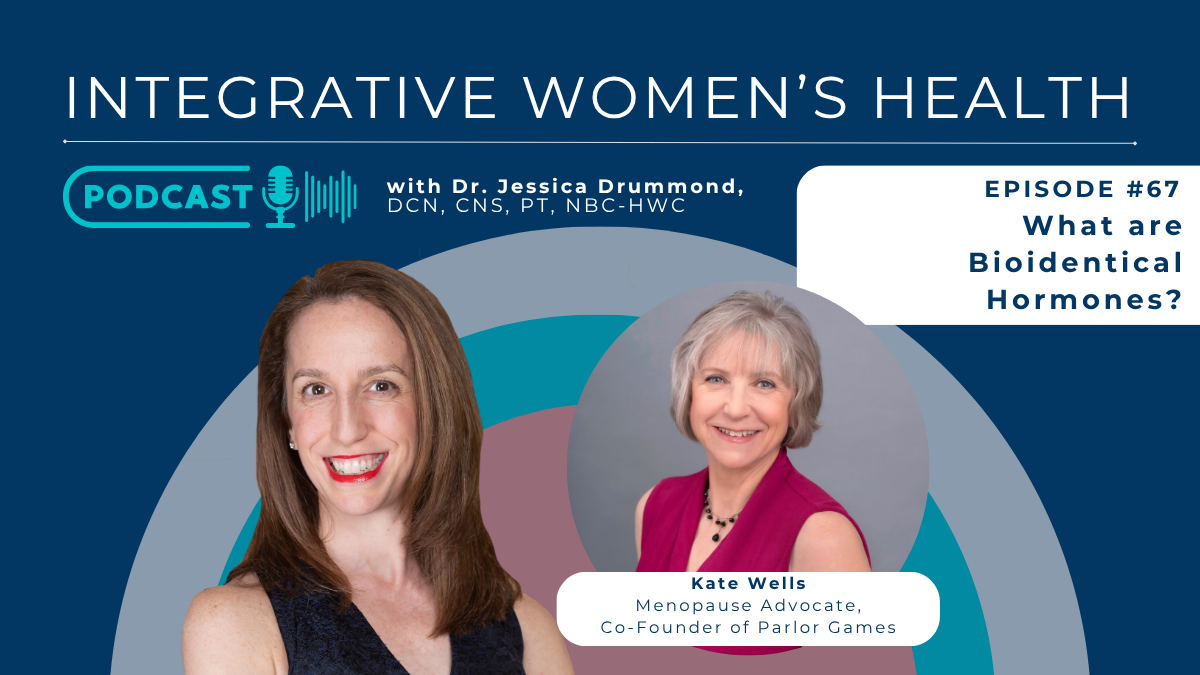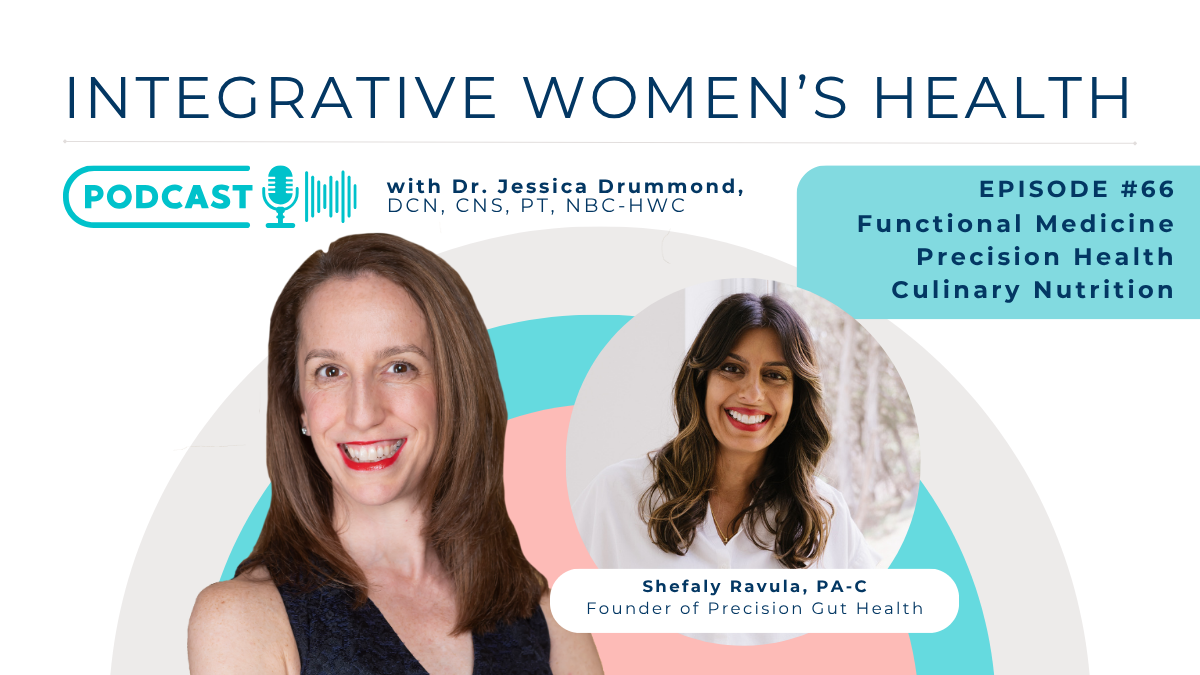Follow Us for Free:
About the episode
“Take your time, decide on one thing that you’re going to focus on, and keep coming back.” – Pamela Windle
The workplace is where women spend most of their time, and far too often, they’re leaving because they’ve lost sight of themselves due to the transition into menopause. Seeing this trend, workplaces are increasingly investing in ensuring their staff have the right tools and resources to remain at work.
Today, I’m joined by Pamela Windle, a Women’s Health Coach who is making waves and actively working to change the UK’s government policy on menopause and menstrual health. While working through her health issues and becoming certified, Pamela saw the massive gap in how women’s health was addressed. Now, she’s talking to leaders of top global companies about how to support the women in their companies to retain them as employees and improve their quality of life at work.
In this conversation, Pamela and I discuss her work with the government, why she chose to make the transition into health coaching, the limited understanding of menopause in society and the workplace, her efforts to educate and advocate for better support systems, how her health challenges influenced her career, the difference it makes for he to have the continuing support through the IWHI, why we should commit to continuous learning, and more.
Enjoy the episode, and let’s innovate and integrate together!
Highlights
- Pamela’s career transition and journey from personal trainer to women’s health coach
- How personal health challenges showed Pamela the need for a new approach to women’s health
- The leap of faith it took for Pamela to apply for the certification program
- Challenges Pamela encountered in starting and building her practice
- Raising awareness around women’s health in the UK
- Helping women to become their own health advocate
- Expanding the conversation on menopause in the workplace
- The importance of ongoing education and the role of community support through the IWHI
- Pamela’s involvement in initiatives to support diverse groups in the menopause space in the UK
- Why it’s valuable to take your time and focus on one thing
Mentioned in this episode
- Pamela Windle’s Website | SmarterChange.co.uk
- Pamela Windle on Instagram @PamelaWindleWomensHealthCoach
Ready to revolutionize your career and grow your practice?
- Integrative Women’s Health Institute on Instagram | @integrativewomenshealth
- Integrative Women’s Health Institute on YouTube
Learn more about The Integrative Women’s Health Institute’s Programs.
- The Women’s Health Coach Certification Program
- Perimenopause and Menopause Certificate Program
- Advanced Menopausal Health Certificate Program
- Functional Nutrition Certificate Program
- Women’s Health in Business Certificate Program
- Endometriosis Certificate Program
Click here for a full transcript of the episode.
Dr. Jessica Drummond (00:00:03) – Hi and welcome to the Integrative Women’s Health Podcast. I’m your host, Doctor Jessica Drummond, and I am so thrilled to have you here as we dive into today’s episode. As always, innovating and integrating in the world of women’s health. And just as a reminder, the content in this podcast episode is no substitute for medical advice, diagnosis, or treatment from your medical or licensed health care team. While myself and many of my guests are licensed healthcare professionals, we are not your licensed healthcare professionals, so you want to get advice on your unique circumstances. Diagnostic recommendations treatment recommendations from your home medical team. Enjoy the episode. Let’s innovate and integrate together. Hi and welcome back everyone to the Integrative Women’s Health Podcast. I’m Doctor Jessica Drummond, your host. Okay. Today I have a juicy one for you. This episode is with Pamela Wendel. She is a women’s health coach I want you to watch for in this episode the work that she is doing to actually change the UK’s governmental policy on menopause and how menopause in the workplace is changing.
Dr. Jessica Drummond (00:01:32) – Not even just menopause, but also menstrual health. Pamela is out there talking to men, leaders of top global companies and talking with them about exactly how to support the women in their companies who are struggling with the menopause transition, or even just menstrual health issues to retain them as employees, which is a huge goal of these large global, international companies. So keep your eyes on that and be inspired. And stay tuned to the very end where I’m going to give you my key takeaway from our conversation. Enjoy. Hi Pamela, welcome to the podcast. I am so excited to have you here, joining us and giving us this opportunity to really hear about your story and your practice, because I know you’re doing extremely innovative things around perimenopause and menopause in the workplace, in the UK. And so first of all, welcome, and I would love to hear the backstory of why you even thought about this career transition in the first place. How did that come about?
Pamela Windle (00:02:55) – Well, I mean, I really didn’t think about it, to be honest.
Pamela Windle (00:03:00) – At that point. I hadn’t heard of women’s health coaching, nothing specifically around women’s health. So for the background of personal training, I was under the assumption that everybody was the same. Yes. And everything that I learned around personal training and the nutrition that goes alongside with that, that there was this one size fits all and that was it.
Dr. Jessica Drummond (00:03:27) – Yeah. And so once you dove into learning about the variability, if you will, among women and, you know, within women too, there are different phases of women’s life and health. What was most interesting to you? Why did you decide to go down the path of working in perimenopause and menopause?
Pamela Windle (00:03:48) – Yeah. So at the point that I discovered you was 2015, and I then took up a course that you were a teacher in that course, which was training Burrows course, wasn’t it? And I hadn’t heard of perimenopause. All I had heard of was menopause. And so doing that course was a real eye opener, and I’d just come out of university a few years before.
Pamela Windle (00:04:17) – So I was really much of a goldfish bowl, you know, so open to learning new things all the time. And it just blew my mind, really, in terms of the information that I learned about perimenopause, I’m thinking, hold on, weren’t we told that when you reach the menopause, obviously you’re old. Yes, old and past it. And the only thing that you struggled with was hot flushes and weight gain. So I was aware of weight gain and aware of hot flushes and dryness. So vaginal dryness is aware of those three things. But that was it. And so what I learnt in that course. So actually there were so many solutions that women could do from a nutrition standpoint from lifestyle supplements as well. And I was just thinking, oh my goodness, hold on, the world needs to know about this. And so yeah, that was literally the start of my journey in terms of understanding that women need something else. And this I think it’s brainwashing. I’d say that we’ve all been led to believe that we are all the same.
Dr. Jessica Drummond (00:05:30) – Yeah, yeah. And so you really started your whole career journey in health and fitness and hypnotherapy much later in life. And so how did that inform your decision to join the Women’s Health Coach Certification? You know, you like made a lot of changes really rapidly, but later in life in your 40s.
Pamela Windle (00:05:54) – Yeah. So there was a build up to it. So. I trained as a personal trainer,, early 20 like 2002 or something like that. So quite a while ago and I’d been teaching classes and everything, but it wasn’t until I wanted more. And then I went to university and did psychology and sport science degree at 40 years old. So that was a real transformation in terms of my self-belief and also in the direction of where I wanted to be as I aged., so the transition into a women’s health coach, really, I’d say it was very natural because at the time when I met you, this is in 2016, I think it was in March in London. And so I was already on your mailing list, and I was receiving your emails, and I was really curious because I’d never heard the terminology functional medicine, functional nutrition, you know, targeted supplements.
Pamela Windle (00:06:50) – I’d heard of coaching, you know, and I’d done a previous coaching qualification myself before. But,, at that point, I was sick myself, and I’d been sick for a long time. At that point, I think it was, well, 2014 or 2012, sorry is when I became unwell originally, but by Tom, I met you in 2016, I was really poorly, really struggling with fatigue, chronic fatigue, and I’d lost my job and everything. And so, you know, as I was learning about the nutrition side of things from the previous course I did, I kind of realised actually there was something missing. There was something that I didn’t know about that I needed to learn. And so it was a no brainer as I was meeting you in real life was just great. I don’t know if you remember that.
Dr. Jessica Drummond (00:07:39) – I do. I remember that event from 2016 because it was the first time I had even met Jenny Birrell, who invited me to come speak at the conference, and it was so unexpected.
Dr. Jessica Drummond (00:07:53) – It’s the first time I’d ever been to the UK, maybe even Europe, although no, I did go to Europe once on my honeymoon before that, which was years before that, but I was in a place to where I was learning so many things, and I was so excited to share it with literally anyone that I was getting on a plane every other week and just talking to anyone who would listen. But what I loved about the audience in the UK is that it was very new in the United States, but it was even newer in the UK. And yet, intuitively, you know, it wasn’t a conversation that anyone was having around hormones and natural approaches to it. And because I think of your medical system and you have some experience working in the NHS, everything is very protocol and regimented. And as you said, like you didn’t even know there was a difference between men and women, never mind a difference between one woman to another woman. And so it was such a great conversation among myself and everyone at that event, because there was this change from a perspective of everyone gets the same thing, which on one hand is there’s a lot of value in that compared to what we have in the US, because some people get amazing things and a lot of people get nothing, which is also bad.
Dr. Jessica Drummond (00:09:13) – But everyone getting the same thing isn’t optimal either. So talk about how that transformed what you know, your experience from being inside of the NHS to what your perspective was at that moment.
Pamela Windle (00:09:28) – Yeah, so I was sick and I’d been sick for a long time, so I’d gone through the medical system, you know, blood tests, everything’s normal, your hormones normal. We’ve checked your cortisol. Some people are just like this, you know. Oh, I was offered antidepressants. And when I decided, you know. And I said, no, it’s like some kind of piece of them. And I guess I was curious, and I was curious about why. Why am I saying what’s going on? Everything that I was doing that I thought I was doing right wasn’t working. And I really couldn’t understand why I felt the way I felt. So meeting you in person really was just the perfect thing, really. And I really believe in how things are brought to us when we are open and when we’re searching for answers.
Pamela Windle (00:10:20) – And so meeting you in London was fantastic. And then I was already on your mailing list, and I was I remember thinking I’d already knew about your course. I remember, you know, receiving about women’s health qualification, but meeting you was the icing on the cake, I think, in person. And then it was a really difficult decision because financially I was really struggling because I was sick and I wasn’t earning an income, and I’d sold my home to live off my equity from a house. And at that point, you know, I remember having ten grand left in the bank account and. I think the course what I purchased, the time was half of that. I just knew that there’s something inside me that I needed to do, because the medical system was basically saying, this is how you are. It’s likely to get worse. You’re likely to develop valve myalgia. You know, we don’t have a solution for you. This is just the way you are now. But I wasn’t going to accept that.
Pamela Windle (00:11:19) – And I remember like filling in, you know, I think that to apply for the course, I think I remember and that was accepted. And then I remember putting in my bank details in like really fearful about, you know, committing to something and financially and I remember I didn’t tell anyone, didn’t tell my partner, my daughter, my sister, no one, because they would think I was absolutely insane.
Pamela Windle (00:11:45) – Yes, yes.
Dr. Jessica Drummond (00:11:47) – And on paper I can understand why. Yeah for sure. Yeah.
Pamela Windle (00:11:51) – Yeah, definitely. And and I remember when the email pinged back and it said congratulations. You know, the cohort that you belong to is May the 5th. And it was 2016. I remember thinking it just really hit me, oh my gosh, I like that date, which was significant because that was the day my father passed away in 2014, and I just knew that was a sign. It was a sign that I was doing the right thing. And, you know, Jessica, if I hadn’t done that, cause I have no idea what I would be today, I really don’t, because for many reasons, but just from my own health journey, I would be sicker because, as you know, fatigue is the iceberg of this is, isn’t it? So I’d be sicker and I wouldn’t be doing what I’m doing today.
Dr. Jessica Drummond (00:12:45) – Thank you so much for sharing that. It’s really vulnerable because you were in such a vulnerable position. You were financially strapped, you were physically really unwell. You kind of tried all the normal stuff for years at that point. So it was a big leap of faith that you took. And I really take to heart how much you trusted me. And you know how that in-person experience made such a difference. And also just being there with I think now we have so many people who’ve shared their experiences, you know, because I’ve taught this program now since around 2006, 2009 and various forms. But at that time it was mostly in person, so I didn’t have as big of a reach. Now, you know, we have a lot of people singing the praises of the experience, and it’s a bigger thing you can trust. But I think you took a big leap of faith, and I really honor that and appreciate that. And I do think that it’s so common. So anyone who’s listening, like the same exact thing happened for me, really.
Dr. Jessica Drummond (00:13:48) – You know, if you’re going to change the normal status quo, you have to take these.
Pamela Windle (00:13:55) – Risks.
Dr. Jessica Drummond (00:13:56) – And you’re often asked to take them at a time in your life when you feel the most vulnerable and you actually are the most vulnerable. But then let’s talk about what happened from there, because the same thing, I feel the exact same way. If I had not changed my life when I was so, so sick and, you know, learned how to do all of this and spent a lot of time and money, you know, turning the mirror on myself and implementing that, there is no way I can’t even imagine how sick I would be. And so I think what I love to then see is then what were some of the milestones in your journey that the program specifically supported you to either celebrate or overcome?
Pamela Windle (00:14:42) – Yeah, we’re talking 2060 and nobody, nobody was talking about the things that you were talking about in the UK. And so as you said at the beginning, the UK was so behind.
Pamela Windle (00:14:55) – And so when I went to my GP in 2018 and said, can you meant by medical records to say that I am now don’t have chronic fatigue syndrome? She said, well, what did you do? And I just thought, oh boy, how am I going to explain this one? So I did tell her, you know, essentially it was healing my gut and supporting my liver, the nervous system, and it kind of washed over her head. But, you know, now things are shifting in the UK a lot. So initially, I say the thing that I needed to overcome was being, well, you know, I didn’t qualify until 2018. I think even I started, you know, 2016. I think by the time I finished because it was like two parts, I think it was like 2018. And so part of that was me getting well and becoming your patient as well in that time. So that that ten grand stretched quite a lot.
Dr. Jessica Drummond (00:15:52) – It did, it did.
Pamela Windle (00:15:53) – It did.
Pamela Windle (00:15:54) – But it was worth every penny, you know. And I would do it again and. Again and again and again if I had to. And so yeah, so initially it was definitely getting better myself. And then also because in the UK it was so extreme in terms of this broader conversation around the menopause, you know, talking about gut health, gut microbiome, liver health, the HPA axis, you know, nobody was talking about that or this personalized health coaching holding your hand and supporting women in a really different way. And nobody was talking about it. So it was really, really challenging from a work perspective. And I felt that people didn’t believe what I was saying, even though, you know, if you go back, if you look on my website, there’s blogs after blogs, after blogs talking about this stuff, people just didn’t believe it. So where we are today, 2024, you know, GP doctors now training in functional lifestyle medicine and they’re almost paving the way for someone like me to be more open.
Pamela Windle (00:17:10) – And there’s certain things I felt like I couldn’t say the fear of being judged, you know, particularly around the toxicity. And as you talk about that bucket, you know, overflowing and overwhelmed with toxicity, you know, only now I feel very comfortable talking about that.
Dr. Jessica Drummond (00:17:30) – Yeah. And so you eventually opened a practice based on initially first just inspired by your own healing and trying to share these tools, even though it was a bit of an uphill climb at first because, as you said, people weren’t thinking that these kinds of things would matter. You know, they didn’t think it would do anything, they didn’t think it would impact. And as you said, they didn’t even really understand it. Like your GP was kind of just like, okay, well write this in your chart, you know, so now you’re trying to start a practice which was challenging at first. But then, you know, in the last few years you’ve really started to make a name for yourself by very deliberately sharing your perspective on this menopause transition, especially for people who are disabled or underserved, which you really were like at one point in your mid 40s.
Dr. Jessica Drummond (00:18:28) – You were very, very fatigued, which is a level of invisible disability. And so I think you have some really good insight into how it feels to not be able to do absolutely everything that even kind of the new medicine, if you will. So talk about your innovations around supporting everyone in the UK who’s struggling with menopause, how you went about that?
Pamela Windle (00:18:54) – Yeah, I guess.
Pamela Windle (00:18:56) – I think about why I’m doing it, you know, because I’m perimenopause. And so whilst I’ve done several qualifications and still learning, it’s not just about other women, it’s also about myself and longevity and how I see myself in the future as I age. In the last 8 or 9 years since they’ve been doing this, and the conversation in the UK is growing momentum and it’s fantastic. However, it’s very narrow in the conversation. It’s very much a white, middle class woman who has resources to help her have an easier journey. And even the conversation around menopause. Yes, people say it’s every woman has a unique journey, but even that conversation is very narrow.
Pamela Windle (00:19:49) – You know, they don’t take into account the challenges that she’s faced the whole of her life. You know, as we’re doing an intake about, you know, a client that sits in front of you, we don’t see her as a woman. 45 we see the whole of her lifespan and mothers, you know, and how that’s influenced her and where she is today. So for me, in terms of raising awareness around women’s health in the UK currently is one in the workplace because the workplace is where she spends most of the time. And as we know, women are all leaving the workplace because they don’t understand themselves, have lost sight of themselves due to the transition into menopause when they’re really unaware of it. So mid 30s, maybe even early 40s. And so the workplace has a responsibility to ensure that the women in their, in their workplaces and organisations have the right tools and the resources to remain in work. So that’s one. And then, you know, I really believe that women, you know, need to become their own health advocates.
Pamela Windle (00:21:07) – They have to. So educating women about the hormones, the toxicity, the accepting. Well, actually I have got fatigue and this is what I can do. You know, we talk about health is like health is a continuum isn’t it? And what is optimal health and what does that mean to you. And as you talk about is that vision like what is her vision? And what can she have today rather than waiting for this perfect health, whatever that looks like, you know, and it’s step by step and the woman’s health assessment, I use that all the time with my clients. I love it, I even do it myself as well.
Pamela Windle (00:21:47) – Yeah.
Dr. Jessica Drummond (00:21:48) – Great.
Pamela Windle (00:21:49) – Great.
Pamela Windle (00:21:51) – Yeah, it’s so good. And it just opens up a fantastic conversation around the topics when you’re working with women and 1 to 1 and they learn things about themselves, you know, things that are holding them back maybe, or things that we can celebrate as well. And I think for me, it’s about ensuring that women really understand themselves and not just this medical menopause that everybody’s talking about, but really in depth, really broad and wider than the conversations that we’re having today.
Dr. Jessica Drummond (00:22:29) – I. I think that’s so important because, you know, one thing that in a way, the UK is really leading on a conversation around menopause in the workplace because there’s an economic driver, right? They want to keep women in, you know, their 50s and longer staying in management roles, staying in with the companies. But as you said, that conversation then keeps the focus on mostly educated, white, upper class, middle class women. And, you know, not everyone has access to that level of resources. And then the second thing, though, is, again, the UK has been somewhat of a leader on distributing, if you will, hormone replacement therapy. But it’s been, again, very structured, one size fits all. This is the evidence. Everyone should do well with this. Whereas I think what you’re really adding to the conversation that country, which is so important and not just in the UK but globally, is that that’s not enough. You know, we can’t just say, okay, you’ve turned 45, 50, go on this dose, this patch, this progesterone bioidentical progesterone, whatever, that’s all useful.
Dr. Jessica Drummond (00:23:44) – But it’s not the end of the conversation. It’s the beginning of the conversation. And you’re now bringing this looking at women’s, you know, as we talk about in the women’s health assessment, like what sense of purpose do they feel, what are their beliefs about themselves. And I just think that the work you’re doing is so groundbreaking because you’re having these conversations with upper level management and major global corporations. I mean, what are their reactions? Like? They haven’t ever thought about this, right? Because most of them are men.
Pamela Windle (00:24:19) – Sadly, most of them are men. But even the women that I speak to because of this narrative around the menopause is so narrow when I speak, they are mostly like pride and they’re like, oh, we’ve never heard it spoke about like this, you know, and they do want more. And it almost as if it rings many bells. Yes. That makes sense. That makes sense. I’m talking in a much different way. And, you know, as we talked about when I first met you in 2016 or, you know, did the course in 2015 and how the struggles around just talking about perimenopause like, hello, there’s this early a bit before we get to menopause.
Pamela Windle (00:25:04) – Now that market or that conversation is saturated, you know, you can Google all sorts of stuff. But the way I’m speaking about it, you know, it’s on another level. And that is because I’m continuing my education through you essentially.
Dr. Jessica Drummond (00:25:22) – Well, thank you. And I think, you know, let’s talk about that just briefly. You know, it’s not just about taking one coaching, you know, certification and checking it off. Right. We do get one of the things that people struggle with when they start to join our health coaching certification or another one of our programs is we’re not the least expensive. And I do that deliberately. We revisit that all the time, but I do that deliberately because I want to pay a highly skilled team of master coaches who are really good coaches, really compassionate people, very well experienced to guide people through that program. And then we give continuing support. So we’ve created our alumni association. We’ve created the Perimenopause and Menopause certificate, the longevity certificate, which is our advanced menopause program.
Dr. Jessica Drummond (00:26:14) – So we have the capacity to follow people. And what I love about you and so many in your class, if you will, of people who started in the Women’s Health Coach certification back in, you know, 2012, 2014, 2016, it’s now 2024 and you’re still a part of the community. And not only are you’re learning, though, you’re also showing up still actively in the calls. You’re answering questions and Facebook, you’re giving that feedback. So our community has these like elders in it now. And how is that from your perspective? How was it in the beginning just to have that support? And how is it now being one of the elders, if you don’t mind me calling you that?
Pamela Windle (00:26:56) – I’ve heard.
Pamela Windle (00:26:56) – It. Thank you.
Pamela Windle (00:26:58) – Do you have.
Dr. Jessica Drummond (00:26:59) – You absolutely.
Pamela Windle (00:26:59) – Have. I mean.
Pamela Windle (00:27:02) – Yeah, I’m just taking that in really? Because I remember being an or, you know, of those elders then been able to answer questions and see things, you know, and thinking, oh wow.
Pamela Windle (00:27:17) – A curious part of me, I want to be like that, you know, I want to be able.
Pamela Windle (00:27:22) – To.
Pamela Windle (00:27:22) – Speak like that around this topic. And so, yeah, I mean, the fact that it is, I think it’s coming up to. Nine years now, which is a lot of time has gone past a lot of learning. And I’ve done, you know, the Perimenopausal certification in the middle of the longevity course as well. And I feel very grateful. I feel very grateful for the knowledge that I have, and it’s exciting. And I really feel that the medical system needs a lot of catching up. And the government here in the UK, you know, making promises around women’s health in general and also in the workplace. But I still feel that it’s not enough. And I really feel that as I’m sharing my wisdom and my knowledge across social platforms, the women that are in my community, the women that you know, I work with on a 1 to 1 or in groups, even, you know, that this is a political stance.
Pamela Windle (00:28:23) – I really believe that it is because women’s health have been neglected for so long, and marginalised women especially, have been neglected for so long. And so it’s something that’s going to grow and is growing. And Pandora is out of her box, you know.
Dr. Jessica Drummond (00:28:45) – Yeah, absolutely. And so having that support so that for years and years and years you can keep growing. And I want you to brag briefly about your work with the UK government and the grant you’ve just been given and some of your really profound speaking opportunities, because your voice is creating that pathway for underserved and ignored women to literally have better lives. So share that with us a little bit.
Pamela Windle (00:29:17) – Yeah.
Pamela Windle (00:29:18) – Well, in 2022, I was asked to be part of the British Standard Institute. So that was incredible. Around an advisor, around a document that was for employers to have some, you know, good tools and guidance for menstruation and menopause in the workplace. So that was really exciting. And that is going to be global soon as well.
Pamela Windle (00:29:45) – So that’s really exciting. And then also for this year, so myself and other people have been given a grant to really shine the light on women and people who menstruate and or in the menopause space. So that’s black and brown women, transgender, you know, any of those people LGBTQ? I think it is.
Pamela Windle (00:30:15) – I’ll be.
Dr. Jessica Drummond (00:30:16) – Blessed.
Pamela Windle (00:30:17) – Yeah. Okay. Yeah. Okay.
Pamela Windle (00:30:18) – And then also people with disabilities as well. So because of the story that we see on social media, which is a really powerful platform, is, you know, not healthy, but abled people, abled, white, generally white women. And so, yeah, so we’ve been given a grant to support those women, which is really exciting how it rolls out this year. You know, basically the landscape is going to look different for 18th of October. So International Menopause Day is going to be a very different landscape to previous years. It’s going to be colourful and diverse.
Dr. Jessica Drummond (00:31:02) – That’s amazing. And it’s so important. It really is.
Dr. Jessica Drummond (00:31:05) – So I really appreciate the work that you’ve done over the past nine years, and I want to honour the fact that because I think this is so many people’s journey, I really want to honour the fact that you have to do it for and with yourself and your own community and the community that’s pull the support from us. That’s why we created this as a community with skilled coaches, with the skilled faculty, with a really strong student population. As you said, you have to apply, you have to speak. You know, we have to accept you into this community at some level in simply just because of your preparedness, so that you’ll be able to take advantage of these opportunities. But you’ve done that and you’ve invested over time, and now the rewards are greater and greater. So I want to end with two things. So what we’re going to be doing is I’m collecting a few questions to be asking the colleagues and peers and professionals that come on this podcast in the next few episodes. But if you could ask a different peer or colleague from me one question about your practice or your work right now, what would you ask them?
Pamela Windle (00:32:15) – Would that be advice or just a question.
Dr. Jessica Drummond (00:32:19) – Yeah. Advice insight anything.
Pamela Windle (00:32:23) – .
Pamela Windle (00:32:23) – Oh goodness what a question I would think I would ask for you to. Do an inventory on everything that I do. I think in terms of my clinic and how am I really serving people, you know, some really honest feedback,, you know, from somebody that I respect would be good, though, being vulnerable to learn from. The work I’m doing.
Dr. Jessica Drummond (00:32:55) – Yeah. So, like having a colleague really essentially assess the structure of your practice and being vulnerable and open to willingness to take in that feedback and decide if it’s useful to you. That’s great. And then if you were to be speaking to a colleague who maybe is a couple of years behind you, what is one piece of advice you would impart?
Pamela Windle (00:33:21) – Oh, I would say.
Pamela Windle (00:33:24) – Just take your time to digest everything that you’re learning. There’s no rush. And also to just focus on one thing. There’s a lot of information. The you know, what you teach us.
Pamela Windle (00:33:40) – There’s a.
Pamela Windle (00:33:40) – Lot.
Dr. Jessica Drummond (00:33:41) – Yeah, there’s a lot I know, I know, I’m a firehose.
Pamela Windle (00:33:44) – Yeah.
Dr. Jessica Drummond (00:33:45) – And take it.
Pamela Windle (00:33:47) – And yeah narrow it. Yeah.
Pamela Windle (00:33:49) – But you know take your time yeah. Take your time and decide on one thing that you’re going to focus on. And keep coming back. Keep coming back to the calls. You know, on the calls on a week of calls, I still am. I’m listening to the conversations you have with other people and I’m still learning, which is incredible. You know, there’s always some notes, something that’s interesting, you know, or I can ask you a question about something. So yeah. So keep coming back and just take your time.
Pamela Windle (00:34:20) – Yeah.
Dr. Jessica Drummond (00:34:20) – Thank you so much for sharing that. Thank you for sharing your journey. I’m so glad to see how vibrantly healthy you are ten years later, and all the amazing work that you’re doing around the world. So thank you so much.
Pamela Windle (00:34:33) – Thank you.
Dr. Jessica Drummond (00:34:38) – I absolutely loved that conversation with Pamela Wendel. My key takeaway from this conversation is that Pamela has been a part of our Integrative Women’s Health Institute community since 2000, 1615, even before I think we met in person in 2016, but we met even before, and I’m so honored by the fact that she literally had so much faith in our work at the Institute.
Dr. Jessica Drummond (00:35:07) – But even more than that in herself, that she literally took essentially her last dollar when she was knee deep in her own health issues, in hating her career, not even able to do her career because she was so sick investing in herself. And now she is one of her country’s top menopause experts, to the national government and to large major multinational corporations. She didn’t even tell you the depth of the people that she’s worked for because she’s so humble like that. And my final takeaway is that she hasn’t stopped there. She has looked around and seen who is underserved in her community people of color, people with disabilities, people in the LGBT community. And she has worked very hard with her colleagues to get grant funding from the national government to support their menopause transition as well. I’m just so inspired by what Pamela has done, and the little secret I wanted to let you in on is that she has not only been just a member of our community for seven, eight years now, but she is a very active member.
Dr. Jessica Drummond (00:36:29) – She shows up to this day on at least one live coaching call every week. She’s actively continuing her learning, and so she’s really taken advantage of all of the support that we offer at the Integrative Women’s Health Institute. She hasn’t had to struggle and do this alone. She’s doing it with full support of herself and cheering on and celebration from every single member of our community, digitally live nearly every week. So don’t forget to take advantage of that support of our community and see what amazing changes you can make in your community. Thank you so much for joining me today for this episode of the Integrative Women’s Health Podcast. Please share this episode with a colleague and if you loved it, hit that subscribe or follow button on your favorite podcast streaming service so that we can do even more to make this podcast better for you and your clients. Let’s innovate and integrate in the world of women’s health.
Join Dr. Jessica Drummond to learn the three key steps to becoming a successful, board-certified Women’s Health Coach who leaves a lasting positive impact on their clients.
Learn how utilizing health coaching skills in your practice is crucial to your success, leaving a lasting impact on your clients, and shifting the paradigm of women’s healthcare.

Dr. Jessica Drummond
Founder & CEO
The Integrative Women’s Health Institute
At the Integrative Women’s Health Institute, we’ve dedicated 17 years to crafting evidence-driven, cutting-edge programs that empower practitioners like you to address the complexities of women’s health.
Dr. Jessica Drummond’s unique approach focuses on functional nutrition, lifestyle medicine, movement therapies, nervous system dysregulation, trauma, and mindset – essential elements often overlooked in traditional health education.
In addition, your training will be fully evidence based, personalized, and nuanced (this is not a cookie cutter approach) in functional nutrition, exercise, recovery, cellular health, and all other lifestyle medicine tools.
You’ll learn to support your clients with cutting edge tools safely and effectively.

